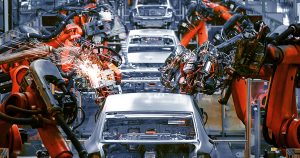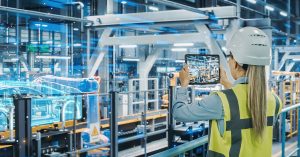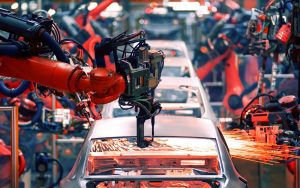
The manufacturing industry stands at the forefront of technological innovation, constantly pushing the boundaries of what is possible. In this article, we explore the cutting-edge frontiers of manufacturing technology, examining the advancements poised to redefine how products are conceived, produced, and delivered in the global marketplace.
**1. **Additive Manufacturing:**
*Overview:* Additive manufacturing, commonly known as 3D printing, is a revolutionary technology transforming traditional manufacturing processes. This method builds objects layer by layer, offering unparalleled design flexibility and the ability to produce complex structures with reduced waste. From aerospace components to medical implants, additive manufacturing is pushing the limits of what can be created.
**2. **Nanotechnology in Precision Engineering:**
*Overview:* Nanotechnology is making waves in precision engineering, enabling the manipulation of materials at the molecular and atomic levels. In manufacturing, nanotechnology enhances the development of ultra-precise components with improved strength and durability. This technology holds promise for applications ranging from electronics to healthcare devices.
**3. **Artificial Intelligence and Cognitive Manufacturing:**
*Overview:* Artificial Intelligence (AI) is ushering in a new era of cognitive manufacturing. Machine learning algorithms analyze vast datasets, optimizing production processes, predictive maintenance, and quality control. Cognitive manufacturing systems adapt and learn, enhancing efficiency and responsiveness in real-time.
**4. **Robotics and Collaborative Automation:**
*Overview:* Robotics has evolved beyond traditional automation to collaborative automation. Robots work alongside human operators, contributing to enhanced productivity and safety. Advanced robotics with sensory capabilities and adaptive learning are redefining how tasks are performed, from intricate assembly processes to warehouse logistics.
**5. **Digital Twins for Simulation and Optimization:**
*Overview:* Digital twins create virtual replicas of physical objects or processes, allowing for simulation, analysis, and optimization. In manufacturing, digital twins facilitate predictive maintenance, performance optimization, and design refinement. This technology is invaluable in creating a digital mirror of the entire production lifecycle.
**6. **Edge Computing in Real-Time Processing:**
*Overview:* Edge computing is revolutionizing real-time data processing in manufacturing. By processing data closer to the source (on the edge of the network), edge computing reduces latency and enhances responsiveness. This is particularly crucial in manufacturing, where real-time decisions can impact production efficiency and quality.
**7. **Biotechnology and Biofabrication:**
*Overview:* Biotechnology is intersecting with manufacturing through biofabrication. This involves the use of living cells to construct functional tissues or products. From bio-printing organs for medical purposes to creating sustainable biomaterials, biotechnology is expanding the possibilities of manufacturing in both the medical and environmental spheres.
**8. **Augmented Reality for Enhanced Productivity:**
*Overview:* Augmented Reality (AR) is enhancing productivity on the manufacturing shop floor. AR glasses or devices overlay digital information onto the physical environment, aiding in tasks such as assembly, maintenance, and quality checks. This technology is transforming how workers interact with machines and data.
**9. **Advanced Materials and Nanocomposites:**
*Overview:* The development of advanced materials and nanocomposites is revolutionizing product design and manufacturing. These materials offer superior strength, conductivity, and durability. Applications range from lightweight automotive components to high-performance electronics, pushing the boundaries of what is achievable in terms of material properties.
**10. **Blockchain for Transparent and Secure Supply Chains:**
*Overview:* Blockchain technology is ensuring transparency and security in manufacturing supply chains. By creating an immutable ledger of transactions, blockchain enhances traceability, reduces fraud, and ensures the authenticity of products. This is particularly crucial in industries where product provenance is critical, such as pharmaceuticals and aerospace.
**Conclusion:**
The frontiers of manufacturing technology are marked by a convergence of innovations that promise to reshape the industry fundamentally. From the precision of nanotechnology to the versatility of additive manufacturing, and the intelligence of AI, these technologies are propelling manufacturing into a future defined by agility, sustainability, and unparalleled possibilities. As these frontiers continue to expand, the manufacturing landscape stands on the cusp of a transformative era that will redefine the very nature of production and innovation.





